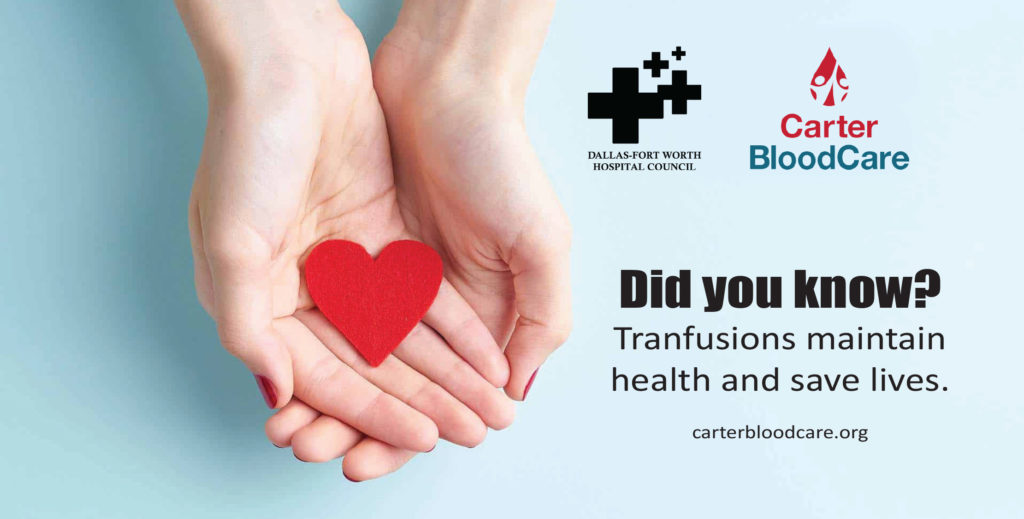
Long-time DFW Hospital Council (DFWHC) partner Carter BloodCare announced last month that due to the ongoing COVID-19 pandemic, the North Texas blood shortage is the worst they’ve seen in decades. For the remainder of 2021, DFWHC will post regular blogs detailing the blood shortage and opportunities in the community to donate blood. Spread the word!
Kelly Bernard, RN, BSN, PCCN, CCRN was a child when she decided to become a nurse. She enjoyed science and watched TV shows like “ER.” Ms. Bernard, now in her 30s, also lives with sickle cell disease (SCD) and has received 1200 units of transfused packed red cells since age four.
Despite the worst blood shortage in 30 years, both locally and nationally, the transfusion needs for SCD patients must still be met. These patients’ needs are another reminder of why blood donation is a significant act of community service; transfusions maintain health and save lives.
SCD is an inherited disorder affecting 100,000 Americans. Patients with the disease have crescent-shaped red blood cells that are stiff, rather than soft, rounded cells. The sickled cells also have a shorter lifespan, resulting in anemia. They can stick together and clog the blood flow, causing severe pain and other serious health problems. Blood transfusions can be a frequent and lifelong treatment for patients with SCD.
Carter BloodCare, serving North Texas medical facilities, receives dozens of transfusion orders each month from hospitals for sickle cell patients. Each order can include 7 – 12 units of red cells. Ideally, the blood is less than seven days old and usually involves molecular testing to obtain the ideal match. Maintaining a blood supply to support the health of SCD patients requires hundreds of units of red blood cells each month.
Ms. Bernard receives red cell exchange transfusions every six to eight weeks, replacing her sickled cells with six to seven units of healthy red cells. She credits medical professionals and blood donors for providing lifesaving care that allows her to pursue her dreams in good health. She will soon begin the next phase of her career – attending school to become a Certified Registered Nurse Anesthetist.
Ms. Bernard’s message to anyone who has not considered blood donation is this: “If you’re able to, it’s a priority to help your community. It may not be you today, but it could be you tomorrow. Whether it’s giving blood or holding a hand, helping each other should be a priority.”
See more of Kelly Bernard’s story and make an appointment to donate blood by visiting carterbloodcare.org.
NTX blood shortage the worst in decades – Transfusions maintain health and save lives
07/14/2021